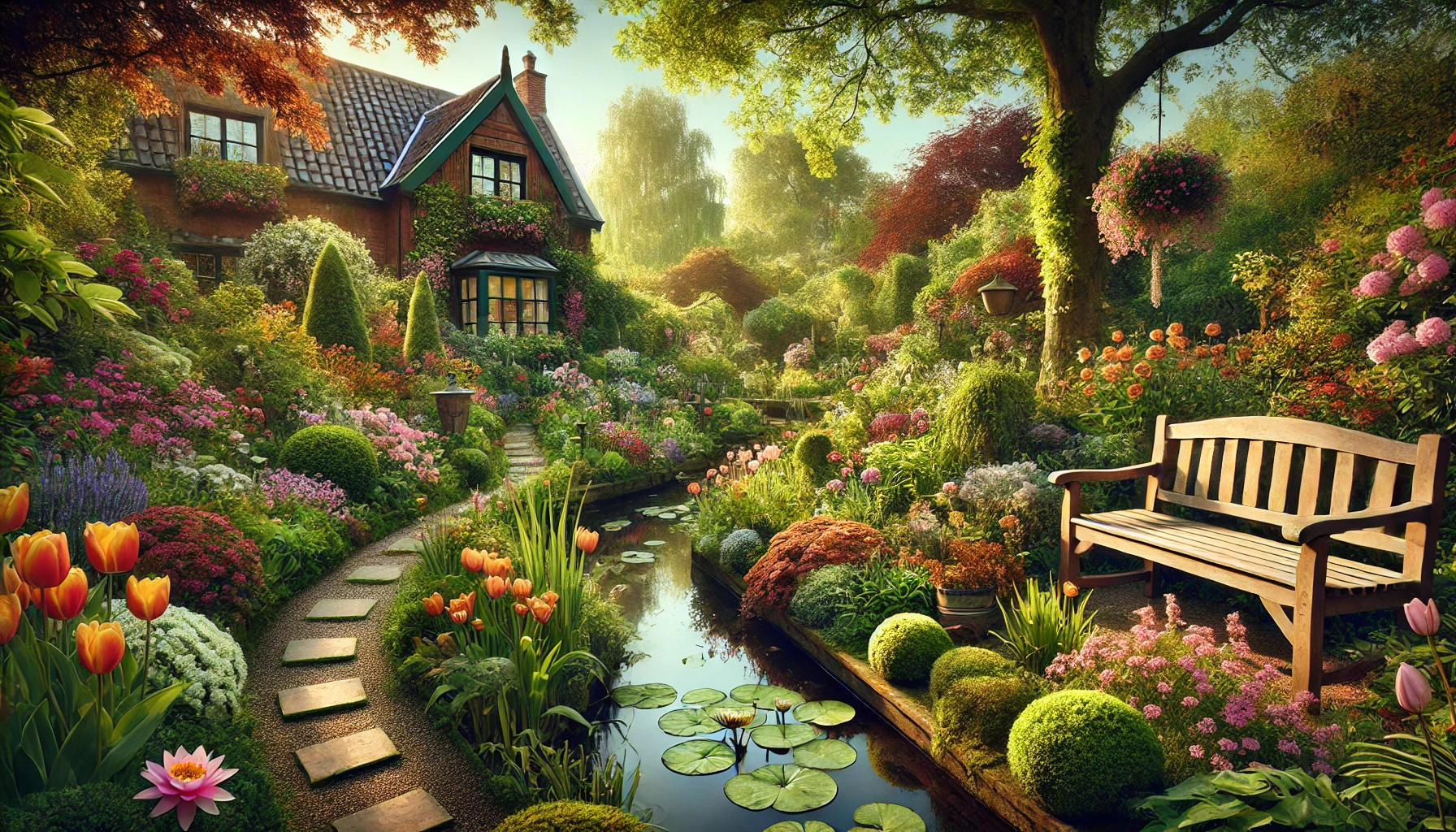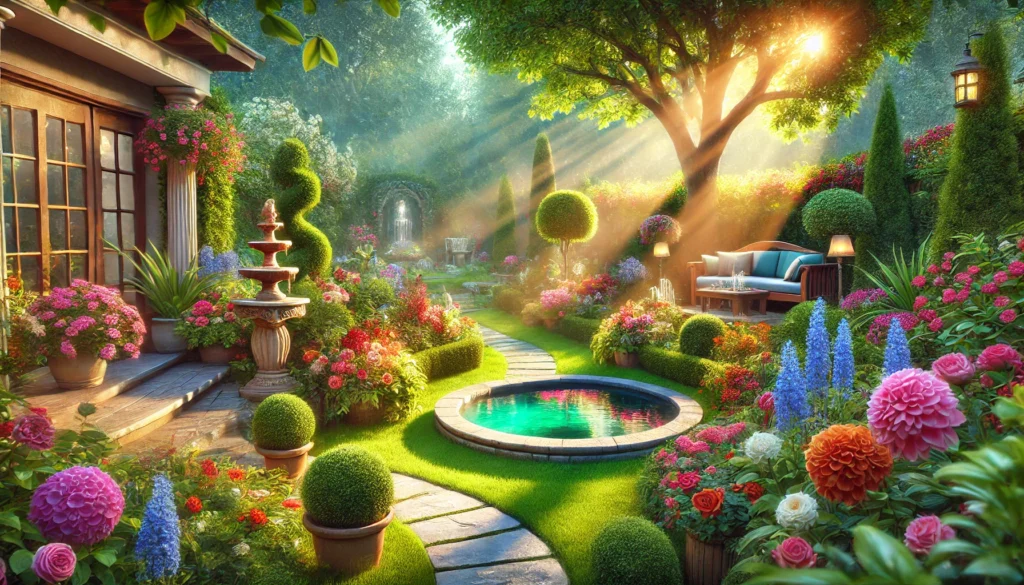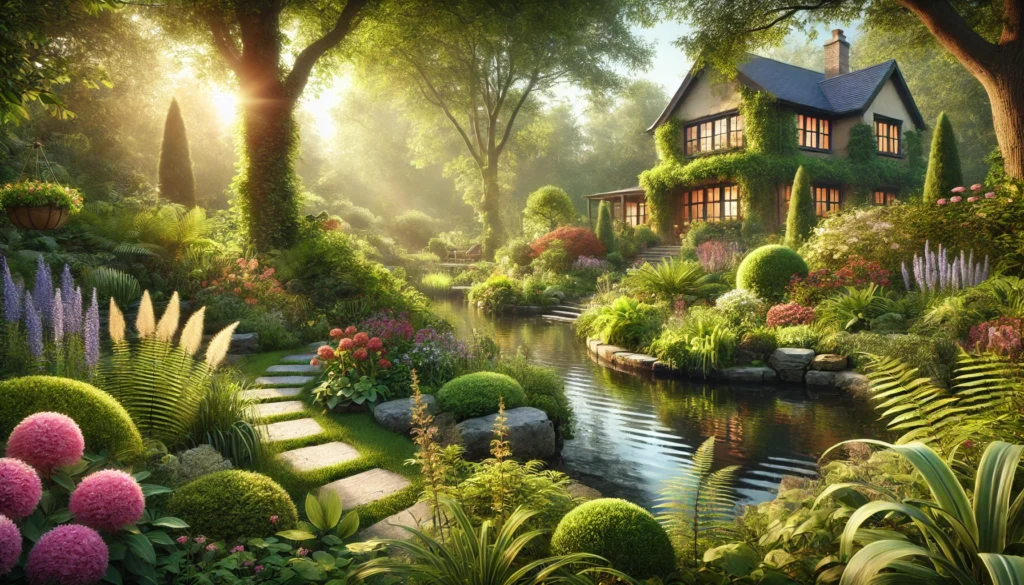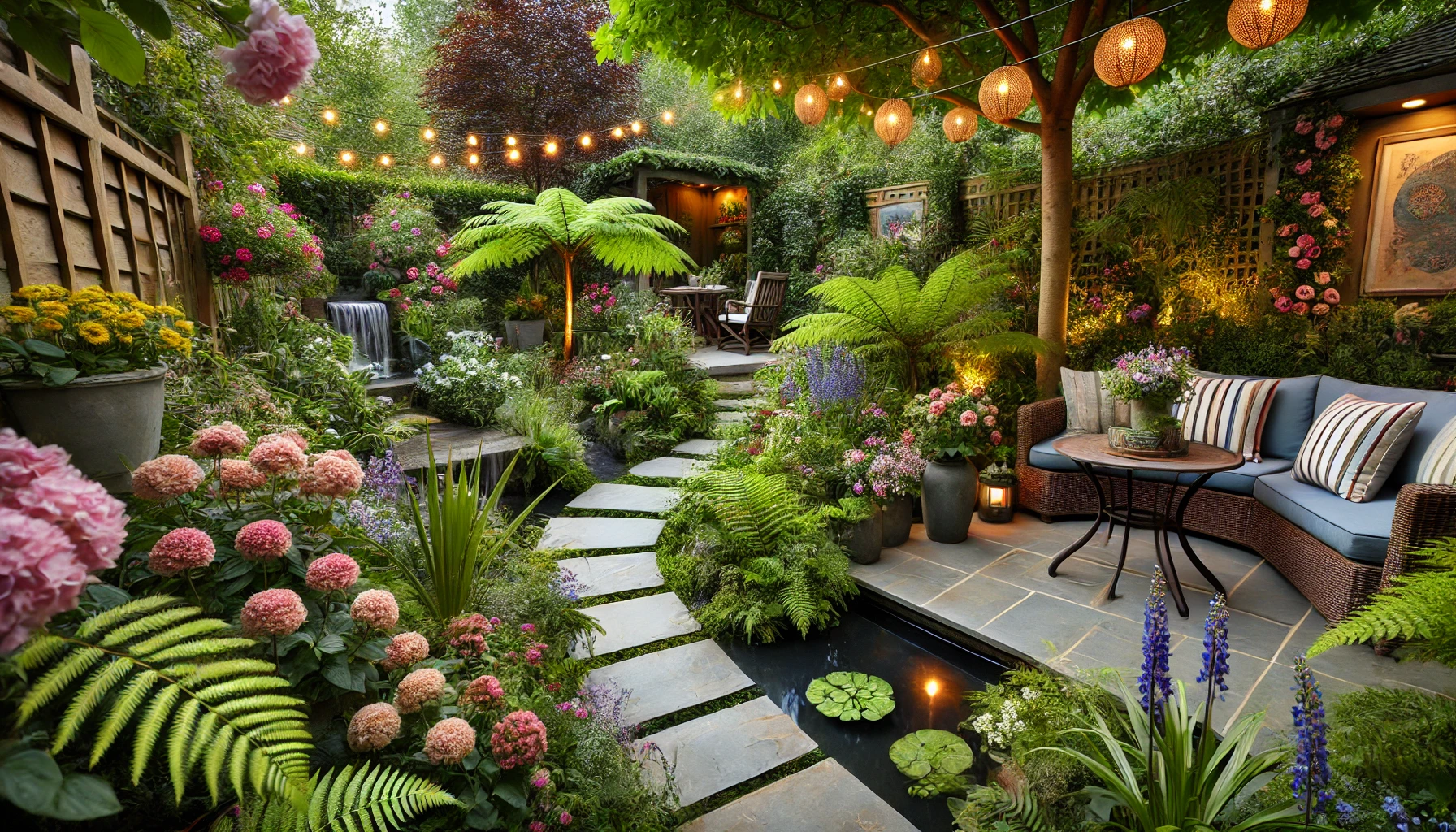
The Spirit of the Home
In the tapestry of home life, the garden holds a unique place, serving not just as an extension of the living space but as the very soul of the home. The idea that “the garden is the spirit of the home” resonates deeply, reflecting the profound connection between a well-tended garden and the overall ambiance and character of a household. This article explores the various dimensions in which a garden embodies the spirit of a home, delving into its historical significance, cultural impact, and the emotional and psychological benefits it brings to its inhabitants.
Table of Contents
Historical and Cultural Significance
Historically, gardens have been a symbol of wealth, power, and tranquility. In ancient civilizations such as Egypt, Persia, and Rome, gardens were cultivated not only for their beauty but also for their utility and spiritual significance. The Hanging Gardens of Babylon, one of the Seven Wonders of the Ancient World, exemplify the early recognition of gardens as places of luxury and divine inspiration.
In many cultures, gardens are also seen as sacred spaces. The Zen gardens of Japan, with their meticulously raked sand and strategically placed rocks, are designed to inspire meditation and reflection, embodying the principles of simplicity and harmony. Similarly, the Islamic gardens, often referred to as “paradises on earth,” are structured around the idea of an eternal, blissful garden as described in the Quran. These gardens emphasize symmetry, water features, and lush greenery, symbolizing life, abundance, and peace.

In Western culture, the concept of the “cottage garden” became popular in the 19th century, representing an idealized version of rural life. These gardens, brimming with flowers, herbs, and vegetables, were seen as a reflection of the homeowner’s values—simplicity, self-sufficiency, and a deep connection to nature. Today, whether it’s a small urban garden, a sprawling country estate, or a modern minimalist outdoor space, the garden continues to play a vital role in expressing the identity and spirit of a home.
Emotional and Psychological Impact
Beyond its historical and cultural significance, the garden has a profound impact on the emotional and psychological well-being of those who cultivate it and spend time in it. A garden is a place of refuge, offering a retreat from the stresses of daily life. The act of gardening itself has been shown to reduce stress, improve mood, and foster a sense of accomplishment. Tending to plants, watching them grow, and harvesting the fruits of one’s labor can provide a deep sense of satisfaction and connection to the natural world.
Gardens also serve as a canvas for creativity and self-expression. The choices made in a garden—whether in the selection of plants, the layout, or the incorporation of personal touches like sculptures or water features—reflect the gardener’s personality and aesthetic preferences. A vibrant, colorful garden may express a joyful, outgoing spirit, while a more subdued, monochromatic garden might reflect a desire for calm and introspection.
Moreover, the garden is often a gathering place, a space where family and friends come together to enjoy the outdoors. It can be a setting for celebrations, quiet conversations, or solitary reflection. In this way, the garden fosters social connections and strengthens the bonds between those who share it, further embedding it as the spirit of the home.

The Garden as a Reflection of Life
In many ways, the garden mirrors the cycle of life itself. The seasons bring changes to the garden, from the new growth of spring to the vibrant blooms of summer, the harvest of autumn, and the dormancy of winter. These cycles remind us of the impermanence of life, the beauty of each stage, and the importance of nurturing what we have.
Gardens also teach patience and resilience. Plants take time to grow, and not every season yields a perfect harvest. There are setbacks—pests, diseases, weather extremes—but the garden, like life, is about perseverance and adaptation. A gardener learns to work with the rhythms of nature, to accept what cannot be changed, and to take joy in the small successes.
The Modern Garden: Adapting to Contemporary Lifestyles
In today’s fast-paced world, the role of the garden is evolving. Urbanization, climate change, and changing lifestyles have led to new approaches to gardening. Vertical gardens, rooftop gardens, and container gardens are becoming increasingly popular in urban areas where space is limited. These innovations allow even those in apartments or small homes to cultivate a garden and enjoy the benefits it brings.
Sustainable gardening practices are also gaining attention, as more people seek to reduce their environmental impact. This includes using native plants, implementing water-saving techniques, composting, and avoiding harmful chemicals. A sustainable garden not only supports the local ecosystem but also contributes to the health and well-being of the home and its inhabitants.
| Feature | Description | Purpose | Impact on Home’s Atmosphere |
|---|---|---|---|
| Lush Greenery | A mix of trees, bushes, and flowering plants adding natural beauty | Enhances visual appeal | Provides tranquility, fosters calmness |
| Pond/Fountain | Small water feature like a pond with lilies or a decorative fountain | Creates a focal point, adds serene sounds | Adds soothing effect, invokes relaxation |
| Stone Pathways | Winding paths made from natural stone or gravel | Guides movement, creates structure | Adds charm, encourages exploration |
| Seating Area | Benches or garden chairs nestled among flowers and plants | Provides a place for relaxation | Encourages connection with nature |
| Natural Lighting | Sunlight filtering through trees, with open areas for brightness | Enhances natural beauty, adds warmth | Elevates mood, creates cozy ambiance |
| Seasonal Flowers | Variety of plants that bloom in different seasons | Maintains garden’s beauty year-round | Adds color and life throughout the year |
| House-Garden Harmony | View of the garden from the home, with large windows or an open layout connecting indoors and outdoors | Blends indoors with outdoors | Makes garden feel like an extension of home |
| Wildlife Attraction | Plants and features that attract birds, butterflies, and beneficial insects | Adds liveliness and biodiversity | Brings movement, enhances ecosystem |
This table chart organizes key garden elements that create an inviting, vibrant space embodying the “spirit of the home.” Let me know if you’d like to add more specific elements or categories!
Conclusion
The garden, in all its forms, truly is the spirit of the home. It reflects the values, aspirations, and emotions of those who create and care for it. Whether it is a small patch of green in an urban setting or a vast landscape in the countryside, the garden is a place where the natural and the personal intersect, creating a space that nurtures both body and soul. In nurturing a garden, we nurture ourselves, and in doing so, we cultivate not just a beautiful space but the very spirit of our home.
Stay healthy, inspired, and informed with Xiel.online!
Our focuss keyword is “garden is the spirit” so enjoy the this article because it is fully on “garden is the spirit”.this article means “garden is the spirit” provide you a next level sense.







